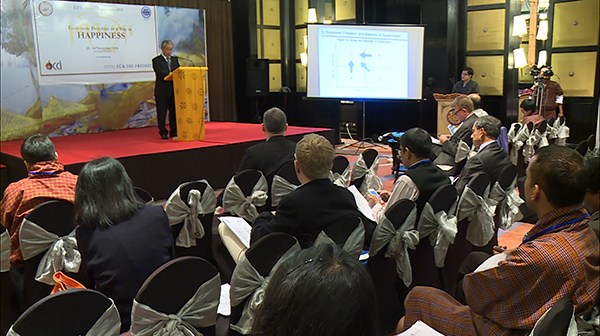 Economic freedom is the prerequisite for happiness, but to what extent should an economy be free? Local and international experts discussed about the importance of economic freedom and how it leads to social and economic prosperity, in the capital today.
Economic freedom is the prerequisite for happiness, but to what extent should an economy be free? Local and international experts discussed about the importance of economic freedom and how it leads to social and economic prosperity, in the capital today.
Experts at the conference agreed, lesser government intervention would provide more opportunities for the people to carry out economic activities to fulfill their own needs or to provide services that fulfill other people’s needs.
More opportunities, more choices and more freedom would therefore lead to economic well-being and happiness.
Dr. Kwon Tae Shin, from the Korea Economic research institute, during the conference said, government intervention should be reduced as much as possible so it creates a liberal environment where people can engage in any economic activity they want within the premises of the law.
Other experts spoke on Buddhist ethic and spirit of economic freedom. Dr Karma Phuntsho from Loden Foundation said the whole system of Buddhism was about liberalisation, which is also reminiscent of economic liberalization.
In Buddhism, he said, the end did not matter as much as the means. Similarly, in economics, if businesses did not adopt best practices, they would end up achieving a lower target.
Meanwhile, in the 2015, index of economic freedom, by Heritage Foundation, a research think tank based on US, Bhutan ranks 24 out of 42 countries in the Asia pacific. With its overall score below global and regional average, Bhutan is considered mostly un-free.








